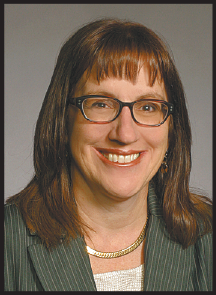January 29, 2015
Your Advocacy Connection
 Offering Comprehensive Long Term
Offering Comprehensive Long Term
Care Solutions and Patient Advocacy
By Nancy Phelps
GolderCare Solutions
Lesson One: How to be a Good Caregiver So, if you are a caregiver, do you think you are a good caregiver? What does it mean to be a good caregiver? Think about that…maybe write down what you consider are good adjectives to describe a good caregiver.
Now, anywhere in there did your write, selfish? I’m pretty sure you didn’t, as I don’t think many caregivers would consider themselves selfish. And why should they, look at all they do for their loved one: they give up sleep, they cook, clean, help with baths if necessary, distribute medications, handle the finances (pay the bills and try to make it work), take them to doctor appointments, and most of all, try to maintain a cheerful disposition despite the frustration they are feeling at any given time. Or, perhaps their loved one is a wanderer, has their days and nights mixed up, so the caregiver sleeps with one eye open at all times. It is hard to be on alert 24/7!
Caregivers need to become selfish in one major area…taking care of themselves. If permission is what you need, then let me give it to you. It’s okay to try to eat healthy, exercise, take vitamins, get some good sleep once in a while, and go out with friends or family without your loved one. Oh,, I hear you almost screaming at me while I type this. “HOW?!?!?!” And, “THAT’S EASY FOR YOU TO SAY!” and “You are CRAZY and have no idea what a caregiver goes through.”
To that last sentence, I respond, “YES, I DO.” I once was a caregiver. I lost 30 pounds (not on a healthy weight loss program), had very little time to myself, rarely saw friends or family, and was exhausted from putting on a happy face and telling people everything is “fine/great.” I finally reached a pretty depressive state that pushed me to go on anti-depressants if I was to be able to continue “living.” Often what we do as caregivers is not necessarily “living,” it’s more like “existing.”
So, the big question caregivers should ask themselves is “How can I take care of myself with everything else I have to do?” The answer is to ask for help from family, friends, your church group, or paying someone else to come in and help. People seem to have problems with two things: 1. Asking for help; 2. Paying for help. Let’s address asking for help first. I ask people why they don’t ask for help. They usually respond with, “Well, I would hate to bother them…I’m sure they are busy.” What if roles were reversed? What if a friend, family member, member of your congregation, etc…were in your shoes? Would you want them to ask you for help? My guess is your answer is “yes.” And next I ask, “And how does/would that make you feel if they let you help out?” The usual response is, “really good, happy, and helpful.” I respond with, “Then why won’t you let them be happy by letting them help you?” The response is usually, “I never thought about it like that.” I then encourage them to let others help them out. You should let them help you out.
Next, let’s address paying someone to help. There are many great organizations that can come in on a regular or as needed basis to help caregivers with cleaning, bathing, laundry, making meals, and staying with the loved one so the caregiver can go get their hair cut, out for lunch with friends, go to church, overnight to a family wedding out-of-town, and many other needs the caregiver has.We are always afraid to spend money to help ourselves and think we should be able to do it all ourselves. You can do it all yourself, but your body, physically and mentally will pay the price.
Statistically, caregivers are negatively impacted, both mentally and physically. If you would like statistics on this, go to https://caregiver.org and to the statistics section. Caregivers MUST find a way to help themselves. It’s okay to be a bit selfish at times. This is very difficult to do and will feel foreign at first, but as you know; with practice it all gets better and easier.
So, please, please try to be a bit selfish, even for 5 minutes a day. Start with baby steps and let others in to help. We used to be a society where neighbors and friends helped out without being asked, but times have changed. We now have to ask, so I know it’s just one more thing to do, but start asking for help. It will make your friends and family feel better.
Nancy Phelps is a Care Advocate at GolderCare Solutions. She is a licensed independent social worker in Iowa & Illinois with 14 years of experience in the mental health field. Working at GolderCare allows her to use her years of attaining resources to help others in crisis/need find the resources and help they can use. You can reach Nancy at GolderCare Solutions Unlimited, LLC (309) 764-2273.
Filed Under: Health & Wellness, Retirement
Trackback URL: https://www.50pluslife.com/2015/01/29/your-advocacy-connection-11/trackback/


